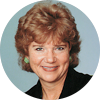Being in the Right Place at the Right Time
The critical mass has been reached and the idea whose time has come is that health and wellness are attainable through self-responsibility. For the first time, significant amounts of federal monies are being allocated to study wellness and health, not just disease and disability. As members of a profession that has always been oriented towards health, wellness and self-responsibility, we will continue to be more closely observed and scrutinized.A recent study commissioned by the FCER by trend forecaster Gerald Celente (Trends 2000) identified the following trends for the new millennium: a major expansion of public interest in holistic health and wellness; maintenance of functional capacity; longevity and life-extension; self-responsibility; and counseling in nutrition, fitness, and other lifestyle changes (e.g., weight management, stress reduction, etc.)1 Baby boomers are fueling these trends because they have "previewed" their own parents' health or lack of it. Our chiropractic training has prepared us for the role of the "wellness doctor" in health care.
To see how well targeted my chiropractic education was back in the mid-seventies, I pulled out some notes I took as a freshman given in a philosophy class by Virgil Strang, DC. Among the notes were the following:
- We have a responsibility to be well.
- There is a physical morality.
- Use the technique, don't be used by it.
- Our responsibility is to grow into our fullest potential as a being.
- Our responsibility is to assist our patients in their fullest growth potentials as beings.
- Adulthood is when the individual takes responsibility of being an individual and alters his lifestyle according to his new level of responsibility.
American health care in this century has not been focused on health. It has been focused on disease, a visible end product of ill health. As chiropractors, we have been bucking the system by attempting to sell the invisible concept of prevention to a system that required, and dare I say "rewarded," the visible manifestations of disease. No wonder we were frustrated!
Through our efforts, and those that went before us, one patient at a time, we have succeeded in introducing thousands of patients to the benefits of spinal adjustments and chiropractic care. First, we asked; then our patients asked; soon other health care professionals asked; and now the nation is asking: "If a problem is taken care of before it becomes a problem, did it ever exist?2 Mainstream medicine is coming our way because of the positive quality of life changes that affect chiropractic patients. Now millions are asking to be shown better ways to maintain and improve their health and demanding that their health insurance carriers pay for it. This is health insurance.
We are wellness doctors, and we need to keep expanding this role beyond talking with our patients about the value of adjustments to include other self-care methods and lifestyle changes that will assist them to attain their fullest potential. If I know a patient is likely harming himself by continuing his current diet, as his doctor, am I being negligent by not talking with him about the modifications necessary for improved health? How does a person learn good health habits and the components that provide a life of wellness?
Chiropractors have achieved portal of entry health care status. Now that we have it, we cannot say, "I only want to be responsible for this and not that." Some responsible allopathic physicians have suggested using the term complementary rather than alternative, as this implies pooling experience and resources for the benefit of the patient.3 I believe it is our responsibility to talk with our patients. We can only do this if we are willing to keep up with new information and challenge ourselves to make necessary changes for ourselves that we have put off too long.
The Right Livelihood
The "right livelihood" has been defined as work that can be undertaken for long periods of time that offers the individual an opportunity to perfect skills and knowledge, that is intrinsically good for the community, and about which the individual can become passionate.4As citizens of the United States and as members of the human race, we should be very concerned about the state of wellness of our nation and our world. We have a method that can significantly impact the health and well-being of the people of our nation and the world. Imagine if the nation woke up tomorrow and all our citizens were healthy!
It is already beginning to happen; a recent study conducted at Duke University found that the quality of life for older Americans has improved since 1982, with disabilities among the elderly population declining by 14.5%. Not only were there fewer disabled people, but those disabled had fewer disabilities.5 As chiropractors, our mission is much larger than a fight about insurance codes and reimbursement for services (though this is necessary as well); this is about the interrelatedness and impact healthy people exert on every other aspect in their lives. Our gift to the world is teaching people how to proceed to reclaim their health. Listen, my friends; learn, and then get busy!
References
- Seater SR. Future forces impacting the chiropractic profession. Journal of the American Chiropractic Association 1997, 34(2):30-32.
- Is this a great time, or what? USA Today, March 7, 1997. MCI Telecommunications Corporation, 9B.
- Rosenfeld I. Alternative medicine: some worth trying. USA Today, March 20, 1997; 13A.
- Phillips M. In the money. The Graduate Review 1978; est: 1-4.
- Friend T.Millions more in better health as they age. USA Today, March 18, 1997; 1A.
Barbara Zapotocky, DC, MA
Honolulu, Hawaii
Click here for previous articles by Barbara Zapotocky-Cook, DC.





